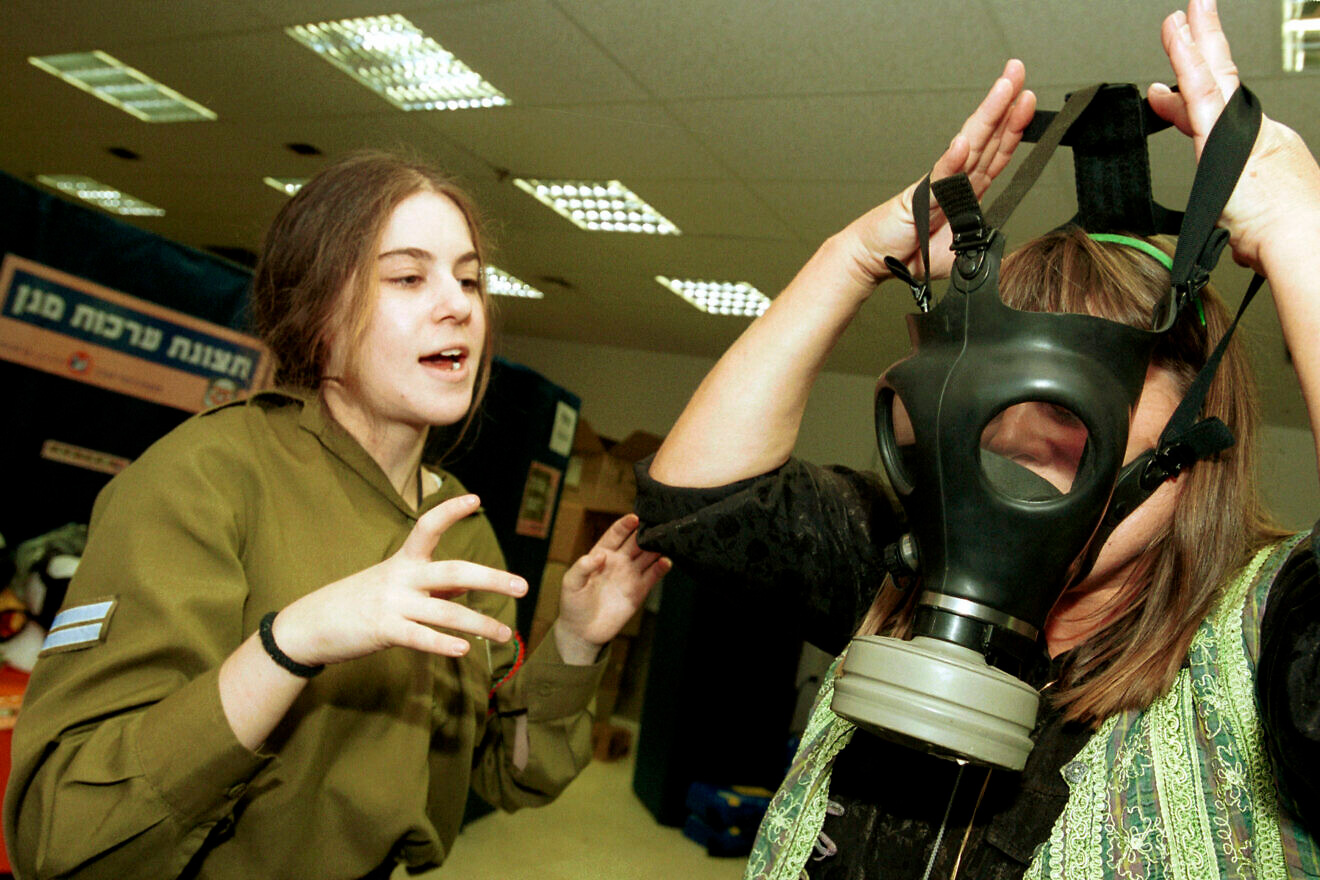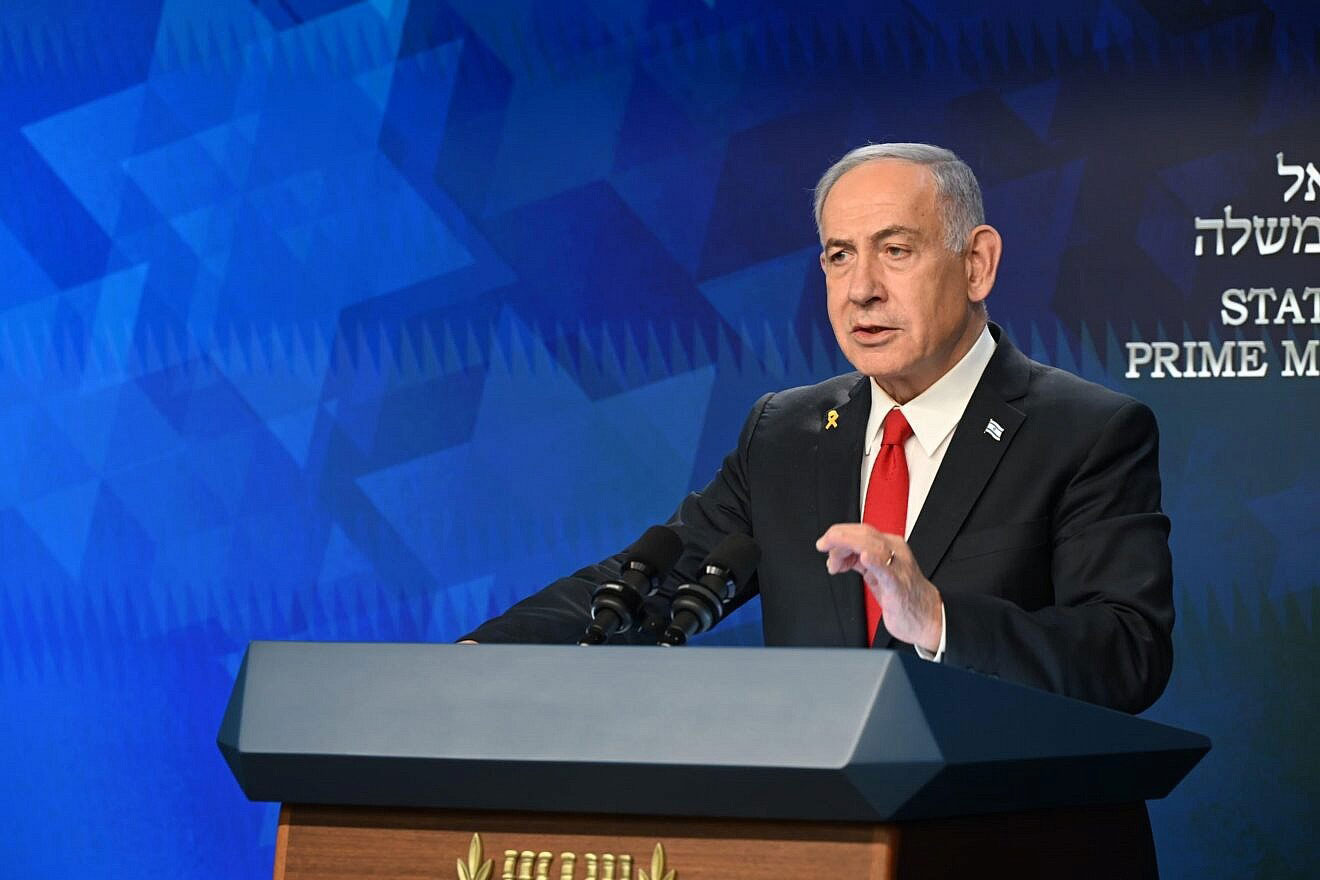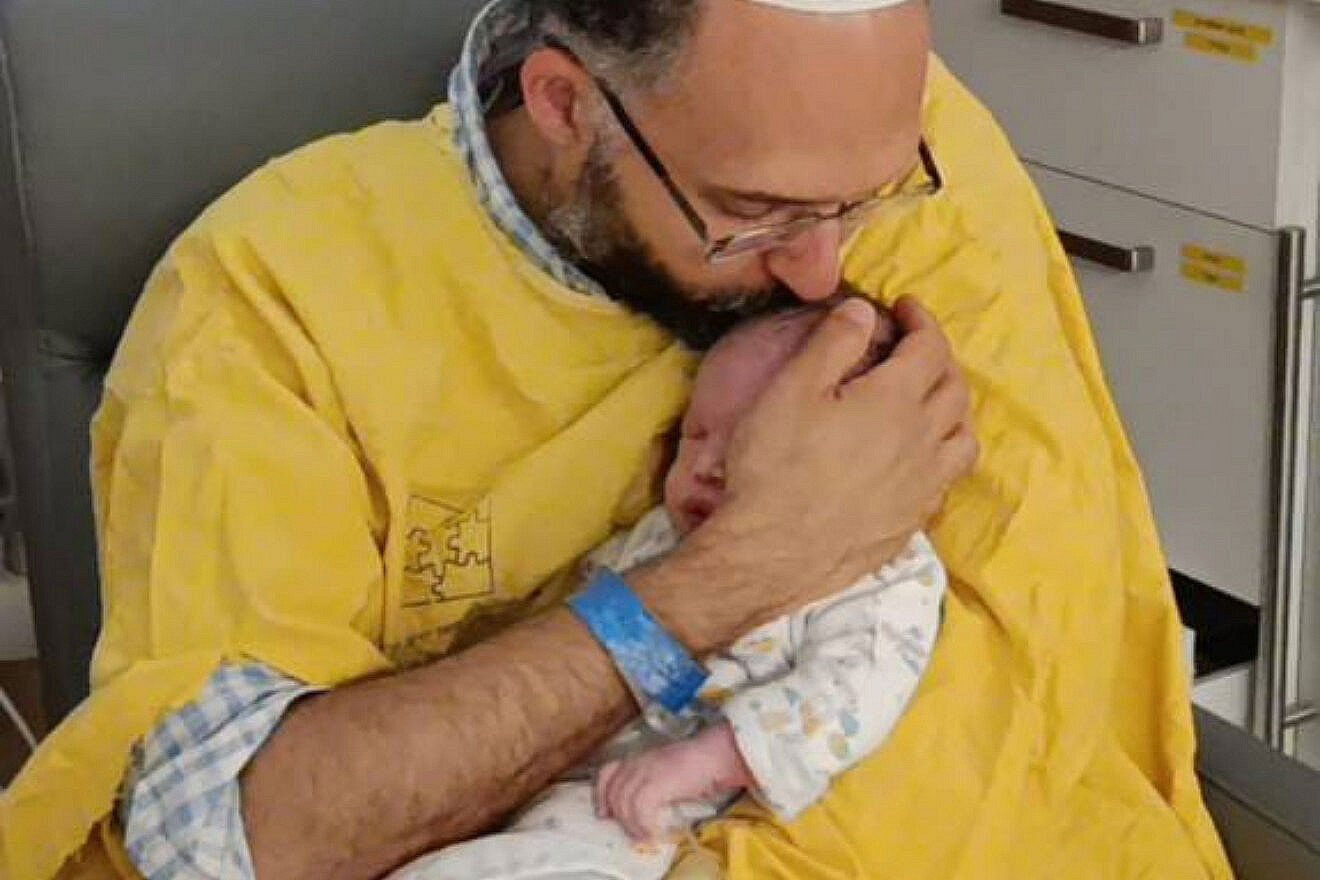Courtesy of JNS. Photo credit: Flash90
A soldier teaches a woman how to wear and use a gasmask during the Second Intifada, Oct. 30, 2001
(JNS) — Over the weekend, more than 120 Orthodox women aged 26-50 enlisted in the Israel Defense Forces as part of the Shlav Bet (“Phase 2”) program track for religious women over the usual recruitment age.
This third and largest cohort of previously exempt religious women arrived at the Bakum recruitment center at Tel Hashomer in Ramat Gan, ready to serve their country.
The majority of these women will undergo a two-week basic training before being assigned to roles that align with their professional backgrounds, including nursing, social work and programming. Some recruits will be immediately integrated into units awaiting their expertise, bypassing basic training. These direct placements include as media representatives for the IDF Spokesperson’s Unit, emotional support specialists for IDF Resilience Centers, and a podiatrist to care for soldiers returning from Gaza.
Yehudit Yeres-Weinstein from Otniel, who championed the project, expressed enthusiasm for the program’s success. Yiska Dekel, enlisting as a casualties intelligence officer after her brother Sgt. Maj. (res.) Yishai Greenbaum was mortally wounded in Southern Lebanon in October, embodies the spirit of determination among the recruits.
The integration of religious women into the IDF has been gaining momentum. In 2019, the Supreme Court ruled that the Education Ministry must create pre-army programs for national-religious girls, paving the way for increased participation. In 2022, the IDF launched a company for women soldiers only, to cater to female religious women who wish to serve. In August 2023, Ohr Torah Stone launched an initiative called Maaminot BeMadim (“Believers in Uniform“) to provide Torah-observant women with spiritual, halachic and practical support during their service in the Israel Defense Forces.
Hila Gonen, who manages a Resilience Center in Sderot and is enlisting to provide therapeutic interventions and rebuild resiliency for those suffering from trauma, highlighted the importance of their contributions.
“Today, I’m actualizing a dream. I’m enlisting in the IDF, albeit 30 years too late, but I have the excitement of an 18-year-old. When people teach the history of the Iron Swords war, they will also talk about the fact that we were here and we enlisted. Us women, some with four children at home, or six, or eight, some who are pregnant, others who are nursing, we all came and we all took part. We are here.”
Dekel is a teacher from the Golan Heights. Originally, she wasn’t going to be allowed to enlist because the army didn’t have a job for her. She fought for her position and asked what was needed until she received the answer that there was a need to fill positions as soldiers who notify family members of casualties.
She responded, “Wherever there is a need, I will serve,” and that is what she will be doing for her service.
“My friends thought that I was crazy and told me that there is no way they would ever do that job,” she told the Srugim news site.
“I will be doing this holy work with as much passion and compassion as humanly possible. I feel that it is my mission to serve, we all do. We look like a high school trip as everyone is so excited, but no one here knows anyone else. Not yet. But we are now a part of history and that is exciting,” she said.
The Shlav Bet program isn’t the only program bringing in religious women to serve in the IDF. Many who are younger are enlisting on their own or in smaller groups. An administrator from the Aish Seminary program, a Jerusalem-based religious women’s seminary catering to students and young professionals, reported that several students and alumnae from the seminary’s Aspire program have enlisted in the military over the past year, while some current students are seriously considering doing so in the future.





